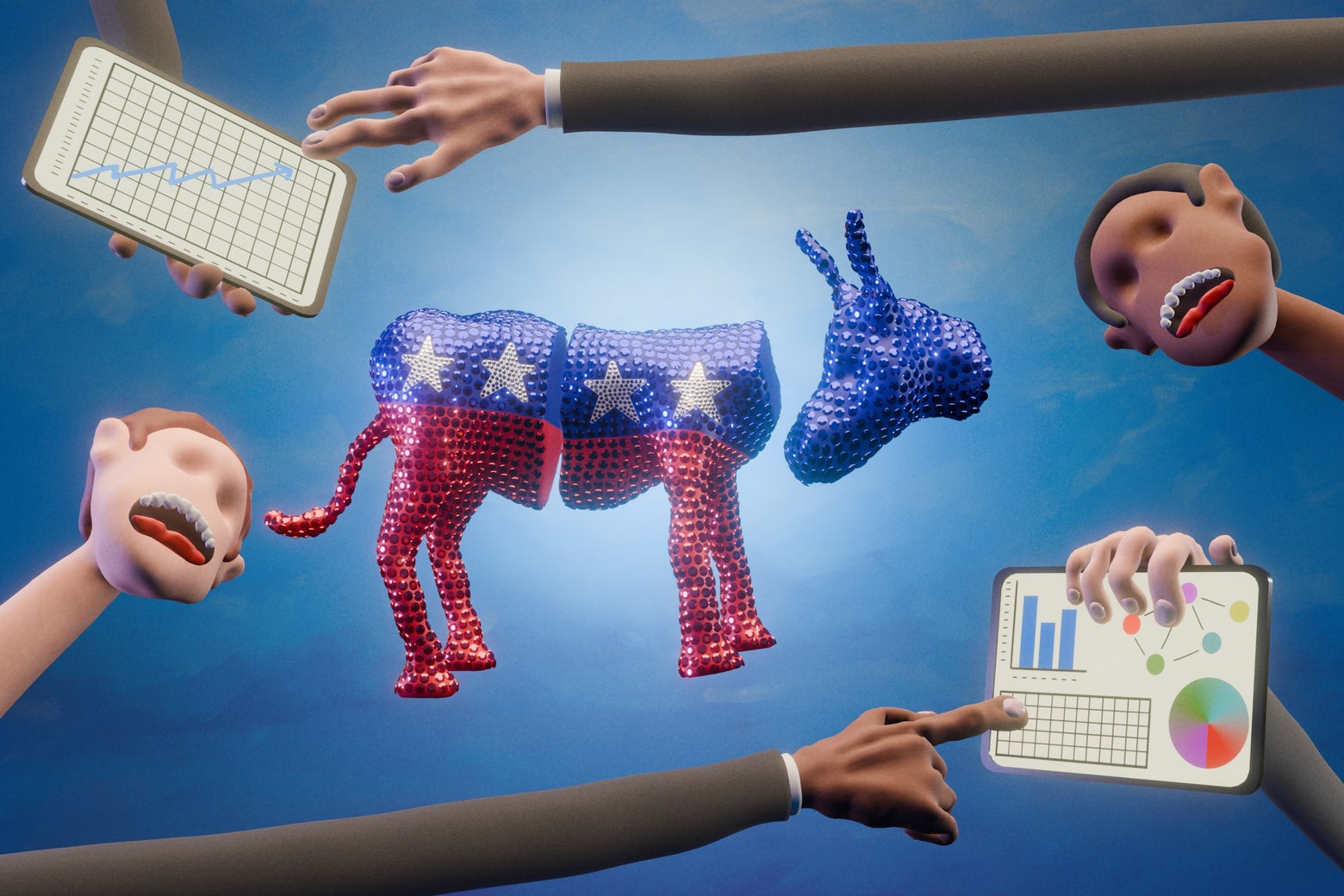the politics of humiliation

In a vague continuation of my previous things to read collections, I started gathering articles I'd come across that I thought were worthy of sharing. Then I started grouping them. And now I might even have a thesis?
So we start with this piece:

which is pretty long and academic but I think captures something important about the present day rise of fascism. Here's a few pull quotes to illustrate where it goes:
Once people get a taste for humiliating, they will fight very hard to be able to keep doing it. Like an addiction, the competitively powerful will often put this urge above all else and behave in profoundly self-destructive ways to chase it. People with others beneath them in a racial caste system almost always prioritize maintaining it over their own economic, social, or cultural interests.
Right populism is driven by the desire to humiliate, left populism by not wanting to be humiliated.
And to connect this to AI, we have this extremely unsurprising story:

And this is extreme, but the point of AI is not just to achieve tasks, but to give the simulacra of having a servant. Someone who will endlessly try to please, someone who you can be cruel or polite to without fear that they will respond to you in kind. I was always pretty sceptical of people saying "I think it's important to say please and thank you to Alexa, just to remember how to behave properly", but maybe I was wrong.
A post that also connects:
i believe that at 18 every american should be entered into a draft, not for military service, but for one year of mandatory retail or restaurant work
— rax ‘levon honkers’ king (@raxkingisdead.bsky.social) 2025-07-22T15:13:26.083Z
Using this lens of humiliation, what does this give us? People who routinely humiliate service workers now might instead think of themself as a potential or former service worker, and treat others more humanely. It's struck a chord.
And you can go darker when connecting this to mainstream politics. Here's Liberal Currents again:

Which instead draws as it's unifying logic the desire to sexually prey on children. Horrifying, yes, but also hard to fully argue against. And it comes from the same basic logic:
Matt Walsh provides a neat summary of the fantasy, tweeting an image of a man carrying a woman and child out of Hurricane Harvey's floodwaters: "Woman cradles and protects child. Man carries and protects both. This is how it ought to be, despite what your gender studies professor says." Of course, in the reactionary fantasy, these benefits are not provided for free. They are animated by a quasi-feudal vision in which other members of the family owe the father absolute obedience in return for the protection he provides.
Fundamentally, children are easier to manipulate. Children are easier to control. Children are easier to groom. Reactionaries believe that women exist to be ruled over by men and bear them children. Of course adult women—and especially educated adult women—will have their own ideas about this state of affairs. But a child you can shape, you can make totally dependent on you, emotionally, socially, financially. What else is "headship" but an argument for pedophilia?
It's not just about power, it's about having absolute power. Being able to subject other people to it.
You might well have seen this next article linked before:

He said his wife had almost been assaulted in Texas, and when she’d called the police they arrested a man who turned out to be an “illegal alien” and who was promptly deported. He said he’d seen videos of a member of the Taliban getting into an argument at a fast-food restaurant in California (I couldn’t find any evidence of this—not even as a conspiracy), and that he wanted to join ICE to protect his family.
“I learned all these skills in the army—smash and grabs, site exploitation—and never got to use them,” he said. “So I’m here to kind of do what I learned to do over there, but this time here, defending my country.”
And here's the way that would be humiliators justify their aspirations.
(also, wow, what a pseudonym "Yanis Varoufuckice" is!)
And now it's time to leave America and go to Dubai:

I went to Dubai wrongheaded. I learnt nothing and left nauseated. I had thought it would be fun – funny, even – to experience the disorientation of standing at the pivot point between two world systems. Instead, it was merely disorientating – sickeningly so. There are hells on earth and Dubai is one: an infernal creation born of the worst of human tendencies. Its hellishness cannot be laid solely at the feet of the oligarchs, whose wealth it attracts, nor the violent organised criminals who relocate there to avoid prosecution. It is hellish because, as the self-appointed showtown of free trade, it provides normal people with the chance to buy the purest form of the most heinous commodity: the exploitation of others. If you want to know how it feels to have slaves, in the modern world – and not be blamed openly for this desire – visit Dubai. But know that you will not be blameless for doing so. Every Instagram post, every TikTok video, every gloating WhatsApp message sent from its luxury is an abomination. A PR campaign run by those who have already bought the product, and now want only to show you that they can afford it.
(what good writing!)
So where is the opposition? Here's two pieces on the failure of centrists to make headway, or even hold their ground, against the fascists. First, at home:

Cross-national studies show that mainstream parties that try to compete with the far right on immigration consistently fail to achieve their goals: It doesn’t gain them votes, and it often loses them. Starmer’s strategy of constantly giving ground raises the salience of the issue; it implies that immigration really is the problem that nativists say it is, and it even legitimates the idea that regular politics has failed people. This all amounts to a complex way of validating fascists: It is effectively saying the far right has the correct concerns, the clearer view of politics, and the greater authority to hold forth on the issue.
Because reactionary centrists do not really have values, they struggle to understand the motivations of those who do. Starmer’s substantive concessions on trans issues and immigration are the most obvious thing in the world to them: He’s giving the median voter the policy they want! But the party isn’t just communicating a policy; its policy is communicating its values—and the “values” proposition is hopelessly incoherent. The government is simultaneously saying it believes and does not believe in liberal core principles. To liberals, this feels like a betrayal. To the right, Labour’s concessions appear inauthentic and pandering.
Our disagreement with fascism is, ultimately, one of values, and it is on that level that the rhetorical fight against fascism must be taken. Those to the left of the populist, nativist right must articulate a competing, values-based vision to give everyone else—and especially the complacent middle—a true alternative to reaction; they must offer a clear, compelling, and coherent story about what the sorts of lives we want people to be free to pursue, and what type of society we want to have to support those dreams. And part of this story will be about just how dangerous, how utterly society-destroying, the far right’s story is. What policy views people can be persuaded to support will follow this conversation, not the other way around.
And back in America:

“The core work of what a party does—determining what the message is, what does the party stand for, what policies does it pursue, what are the public rationales it offers—all those things have been outsourced,” Martin said. There is still a party machine, of sorts, in that Democratic decisionmaking is disproportionately controlled by a certain group of powerful individuals, like the ones who were accused of putting their thumb on the scale for Hillary Clinton in 2016 and helping cover up Joe Biden’s decline in 2024. But now those figures are part of a “blob” (that’s another Hollow Parties term) of consultants and fundraisers clustered on the coasts who have neither formal obligations to nor channels of communication with the vast majority of Democratic voters.
Message testing can’t tell you how to handle contradictory or volatile voter beliefs—the public tends to say it supports both increased government spending andsmaller government, for instance, and has shifted its position on whether there should be more or less immigration 10 times in the past 10 years. It can’t tell you, in the event that you enact a useful policy, how to make sure voters notice its effects and associate them with Democrats; conversely, it doesn’t tell you anything about the potential consequences of winning office and failing to follow through on something that you claimed, during your campaign, to support. Shor’s tests regularly find support for unambiguously liberal messages about taking on corporate special interests and raising taxes on the wealthy, but when Democrats actually hold power, this commitment somehow always ends up getting stuck to the bottom of the desk drawer.
Public opinion can be fluid; a party that wants to succeed in the long term—and especially one that bears the burden, in a two-party system, of maintaining a functional country—needs to have priorities besides winning the next election. With these truths in mind, Democrats have a choice. They could put their heads together to make an educated guess about what the country might look like, think like, and need out of its government in 2028, then conduct themselves accordingly for the next three years. Or they could spend several hundred million dollars to find out again that the middle class likes the phrase “lift up the middle class.” Which do you think they’re more likely to choose?
Okay, enough with staring into the void. Time to link some stuff that's hopeful. This mindset is not the only way to think. There is a better way to live! Social status is not purely zero-sum. People can be good to be around! Loneliness and isolation is not obligatory.

Just like that essay on humiliation, this starts with recounting childhood bullying:
I still can't really make sense of what happened next. I said some words, following everyone's lead, and the girls decided to pretend they'd not been playing that game at all, and were shocked to hear me say such bad things, and they went to report me to the teacher, who duly told me off. Had they lured me in for the specific purpose of eventually betraying my trust, and getting me grounded? I'll never find out. I can't think of another reason why they did what they did. I can't think of a reason why such small children would behave in such a vicious way.
But, rather than staying in that mindset, instead, she chooses instead to talk to people, to live within the world:
I love my friends but I love my acquaintances as well; I know so many of my neighbours, and the people who run my local businesses, and it can be hard for me to leave the house without exchanging at least a few words with someone, somewhere. I've no idea who I would be without all of them. I can't imagine what navigating the many lows of the past few years would have been if I'd remained alone.
Anyway, it's a great essay on the value of human connection, the sheer joy of it in and of itself.
On the subject of connection, here's a story from 1989 which is just... the story of someone's life:

Across the street from the sailors’ apartment was an old but unfinished house. You couldn’t see it from the street; it was shrouded in pepper trees, bougainvillea, morning glories. The house belonged to a person who called herself Corsica Bascurain de Kuprinska, an old woman with white hair and thick black mascara. The sailor figured she must have been in her late 50s. An aged, would-be Paloma Picasso. A quasi bruja. A painter who didn’t paint anymore, just drank rot-gut gallon bottles of Cribari burgundy. She chain-smoked Delicados. Her speech was laced with insults, and her insults were laced with words like “bureaucrat,” “Nixon,” and “ cochino .” Like the building inspector, who would come around once in a while.
Just great writing, and exemplifying, if not talking about, caring about other people's lives.
And here's a review for the new Superman film (which I liked):

Superman is an alien in every sense of the word, raised with what we have mythologized as traditional values in rural America, sent to spread the gospel of doing the right thing because it is the right thing to do. When he matures, he braves the sin and seductions of the Big City, the mortal city, the Fritz Langian Metropolis, which, whatever its faults, still has a newspaper that aspires to journalism in 2025. There, he falls in love with the creatures he was entrusted to protect. All of them. He sees value in everyone because he is the most alien of anyone. Some people would like to frighten you away from places where you’re forced to consider the broad diversity of mankind as human beings–colleges and cities, for example. Did you ever wonder why?
All of these pieces make the case for a life lived not in dominance and fear, but with open curiosity, compassion for others.
Okay, that's your lot, that's what I've been thinking about recently. Some good writing, some interesting arguments, a thesis for the shape of the world as-is.
Oh, wait, here's a post-script. A bit from that Marie Le Conte piece that I think needs more emphasis:
Of course, it requires more work, but that's the entire point. It's easy and tempting to opt for solitude because nothing is more straightforward than lying to yourself, sometimes even without realising that you're doing it.
It's work, and scary work, to talk to people and exist in the world and not be isolated. It's safer to seek an AI "relationship", because there's no fear of rejection there. Lockdowns, and algorithms, and the apps, and an increasingly atomised society... they get us out of the habit of talking to other people, of valuing human contact on non-commercial terms. Important to push back against, just on personal terms - but if our political futures hang on society to be more pro-social in fundamental ways... I feel deeply unsure about that happening any time soon.










Member discussion